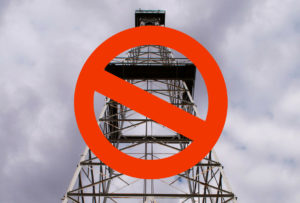
The vibrant movement to ban fracking worldwide can celebrate another victory: On 25 April, the Chamber of Deputies in the Argentinian province Entre Ríos unanimously approved a law prohibiting fracking. Unconventional exploration and exploitation of hydrocarbons, including fracking, will be forbidden following the new law, making Entre Ríos the first Argentinian province to ban the risky practice.
Behind this remarkable victory, there is a long, stony path that different organizations and social movements walked together, working hard across the country, notably in Río Negro, Santa Fe, Buenos Aires and Neuquén. The decision in Entre Ríos should also be a wake-up call for regions beyond the Argentinian border like Bolivia, Mexico, Colombia, Paraguay and Chile. There have been many successful initiatives in different Latin American countries: for example, several Brazilian cities banned fracking and five Departments in Uruguay prohibited the dangerous technique.
Argentina is a country largely dependent on fossil fuels, and there have been significant discoveries of shale gas deposits there in recent years, amounting to the world’s second largest reserves of technically recoverable shale gas. The large Vaca Muerta shale basin in the province of Neuquén has since then developed to become a real fracking hot spot.
The approved law highlights the need to protect the Guaraní Aquifer, which is one of the biggest stores of fresh water worldwide. Fracking operations with the purpose of forcing gas out of rock formations by pumping large amounts of water with sand and a mix of different partially highly hazardous chemicals underground could represent a serious risk of contaminating this indispensable source of water. Also, the high use of water for fracking is often in conflict with communities’ needs for fresh water for their own use and for traditional activities, particularly agriculture in the region.
Good news from countries that are considered important producers of shale gas are more than necessary at times like these. We must keep fossil fuels in the ground to limit global warming to an acceptable level for people and the planet.


